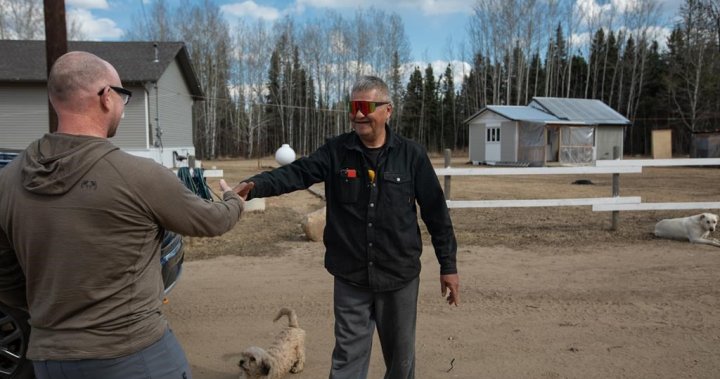Raoul Montgrand, president of the Chard Métis Nation in northern Alberta, lived in a small camper trailer for close to two years due to the ongoing housing crisis in their community. The dire housing conditions, such as multiple families living in one house, were particularly concerning for Montgrand because it impacted the children’s ability to access education. The Chard Métis Nation is part of Cenovus Energy Inc.’s Indigenous Housing Initiative, which pledged $50 million to build homes in Indigenous communities near its oilsands operations. Over 120 homes have been funded through the program, with a goal of reaching 200, and close to half of Chard’s 650 residents will have new homes by the end of the initiative’s five-year lifespan.
Former CEO and current executive chair of Cenovus, Alex Pourbaix, was shocked by the poor state of housing in northern Alberta Indigenous communities, which inspired the company’s housing initiative. The situation in Chard, where many residents lived in damaged homes with issues like broken windows and black mold, reflects Canada’s broader Indigenous housing crisis. Statistics Canada data from 2021 revealed that over one in six Indigenous people in Canada lived in crowded housing that was deemed unsuitable, with Indigenous individuals nearly twice as likely as non-Indigenous individuals to face such challenges. The Assembly of First Nations reported that 157,453 new homes are urgently needed across Indigenous communities in Canada, requiring a significant investment from the federal government to close the housing gap by 2030.
Under the Cenovus Housing Initiative, individual communities decide how to procure homes and administer the program, resulting in a variety of home styles and sizes being built, including pre-fabricated and on-site constructed homes. Cenovus also launched a construction and trades readiness program in partnership with a local college to teach construction and maintenance skills to community members. Despite the program’s successes, building houses in remote Indigenous communities presents challenges such as limited access to construction materials, appliances, and furniture, as well as the high cost of connecting new homes to utilities. The CEO of Chard Métis Nation, Justin Herman, emphasized the importance of Indigenous leadership in addressing the housing crisis and highlighted the joy and relief community members experience when moving into their new homes.
The housing crisis in Indigenous communities extends beyond Chard and reflects a broader issue faced by Indigenous peoples across Canada. Existing funding models are insufficient to address the urgent need for new homes, with the Assembly of First Nations estimating that over $135 billion will be required to close the housing gap by 2030. Indigenous communities are closest to the issue and understand it best, emphasizing the importance of empowering Indigenous leadership in finding solutions. Despite the challenges of building homes in remote communities, the Cenovus Indigenous Housing Initiative has made significant progress in providing safe and comfortable housing to residents in need.
The impact of the housing initiative goes beyond physical shelter, instilling a sense of pride and relief in community members who may have never thought they would become homeowners. Seeing the look of exuberance and pride on the faces of residents when they move into their new homes is rewarding for community leaders like Justin Herman. The initiative not only addresses the immediate need for housing but also contributes to the overall well-being and stability of Indigenous communities in northern Alberta and beyond. Through partnership and collaboration, companies like Cenovus are making a tangible difference in the lives of Indigenous peoples who have long been marginalized and underserved in the housing sector.


